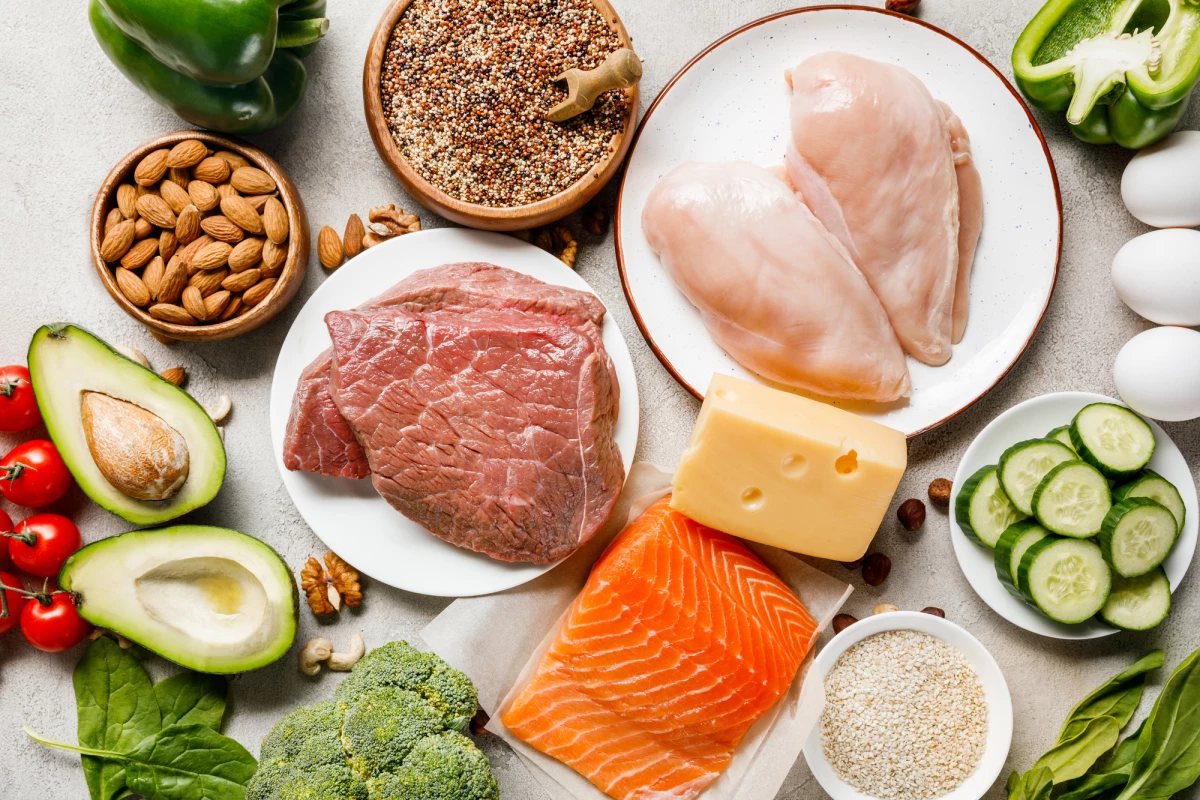A comprehensive new study, led by scientists from UC San Francisco, is offering robust new insights into the way a ketogenic diet can influence the gut microbiome, and subsequently result in broader health benefits.
A ketogenic diet is based on the idea that limiting one’s intake of carbohydrates and sugars forces the body into a metabolic state known as ketosis. Instead of relying on carbohydrates for energy, ketosis involves the liver producing ketone bodies from stored fat.
The diet was originally developed a century ago as a treatment for pediatric epilepsy, but over recent decades it has become a popular weight-loss diet. And in tandem with a growing interest in the broad systemic influence of the gut microbiome on general health, studies have increasingly looked to how a ketogenic diet affects gut bacteria.
Peter Turnbaugh, an author on the new study, suggests it was a strange contradiction that inspired the research. We know high-fat diets lead to disease, and we know some of those negative health effects are modulated by changes in the gut microbiome. So how does a high-fat ketogenic diet result in such dramatically different effects from a general high-fat diet?
“I got interested in this question because our prior research showed that high-fat diets induce shifts in the gut microbiome that promote metabolic and other diseases in mice, yet ketogenic diets, which are even higher in fat content, have been proposed as a way to prevent or even treat disease,” says Turnbaugh. “We decided to explore that puzzling dichotomy."
To offer a rigorous insight into the effect of the ketogenic diet on a human gut microiobiome, the researchers recruited 17 non-diabetic overweight subjects for a two-month inpatient study. The subjects lived in a controlled hospital environment experiencing four weeks on a ketogenic diet (15 percent protein, 5 percent carbs, 80 percent fat) and four weeks on a standard diet (15 percent protein, 50 percent carbs, 35 percent fat).
Stool sampling revealed dramatic, and rapid, changes in microbial populations between the two diets. Significant changes were detected across 19 different bacterial genera. Of particular interest to the researchers was a major drop in Bifidobacteria levels when subjects shifted to a ketogenic diet.
Subsequent animal tests confirmed these microbiome differences between ketogenic and high-fat diets. More interesting, however, was the finding that the microbial shifts directly correlated with gradual changes in the levels of ketone bodies.
“This was a little surprising to me,” says Turnbaugh. “As someone who is new to the keto field, I had assumed that producing ketone bodies was an all-or-nothing effect once you got to a low enough level of carb intake. But this suggests that you may get some of the effects of ketosis quite quickly."
The study also found the microbial changes linked to a ketogenic diet could be generated by simply adding synthetic ketone bodies to a high-fat/high-carb diet. This suggests it is the particular metabolic shift to producing ketone bodies that is causing a downstream effect on the microbiome.
“This is a really fascinating finding because it suggests that the effects of ketogenic diets on the microbiome are not just about the diet itself, but how the diet alters the body’s metabolism, which then has downstream effects on the microbiome,” adds Turnbaugh. “For many people, maintaining a strict low-carbohydrate or ketogenic diet is extremely challenging, but if future studies find that there are health benefits from the microbial shifts caused by ketone bodies themselves, that could make for a much more palatable therapeutic approach.”
The new study was published in the journal Cell.
Source: UCSF




